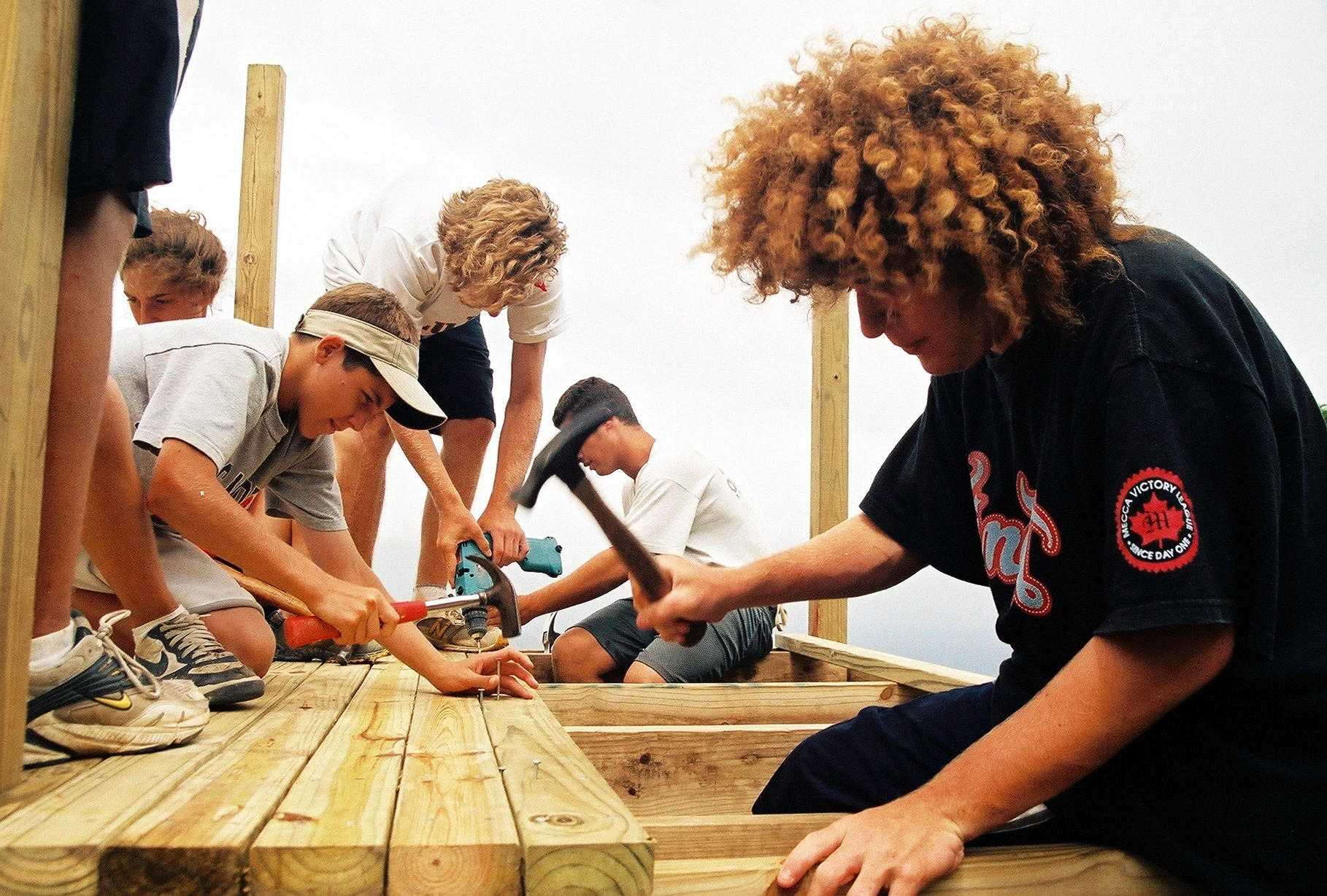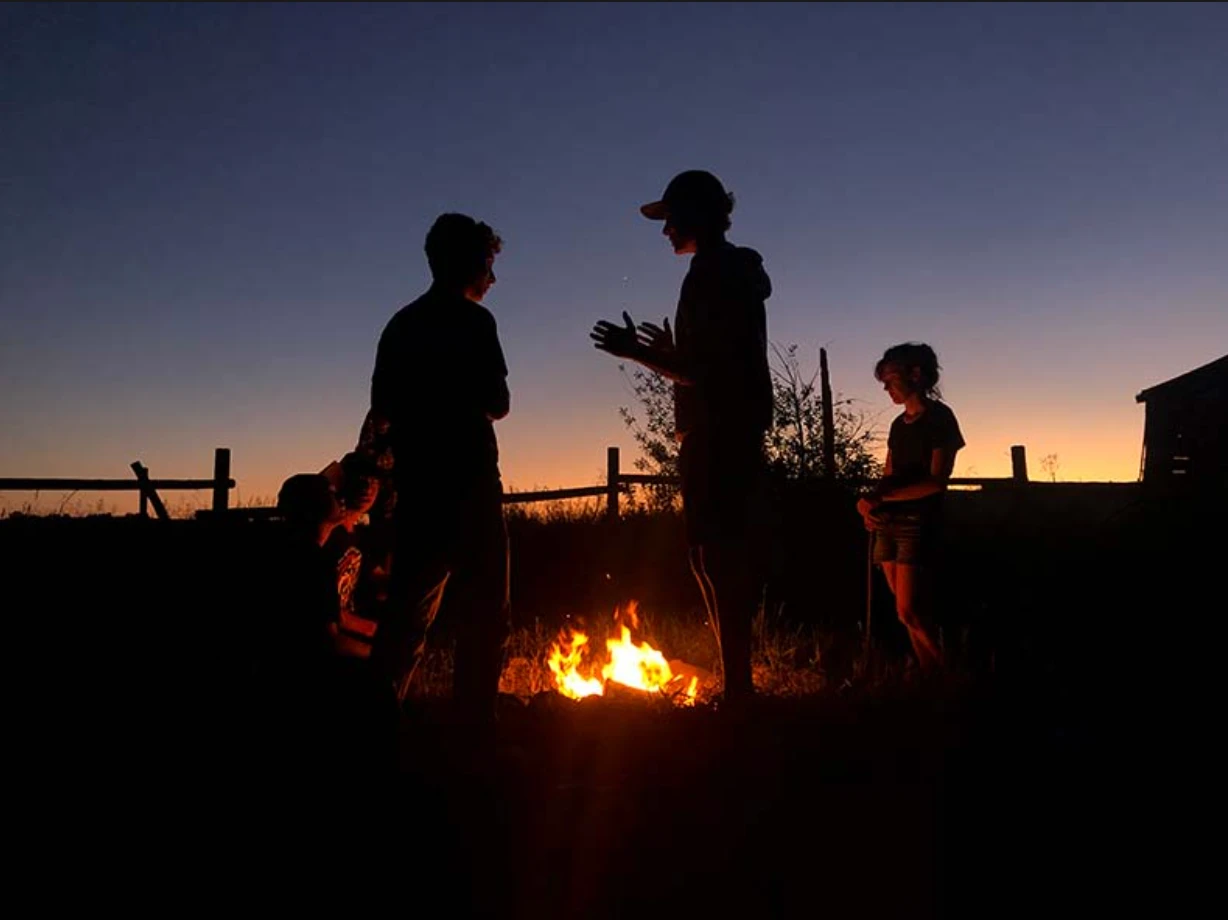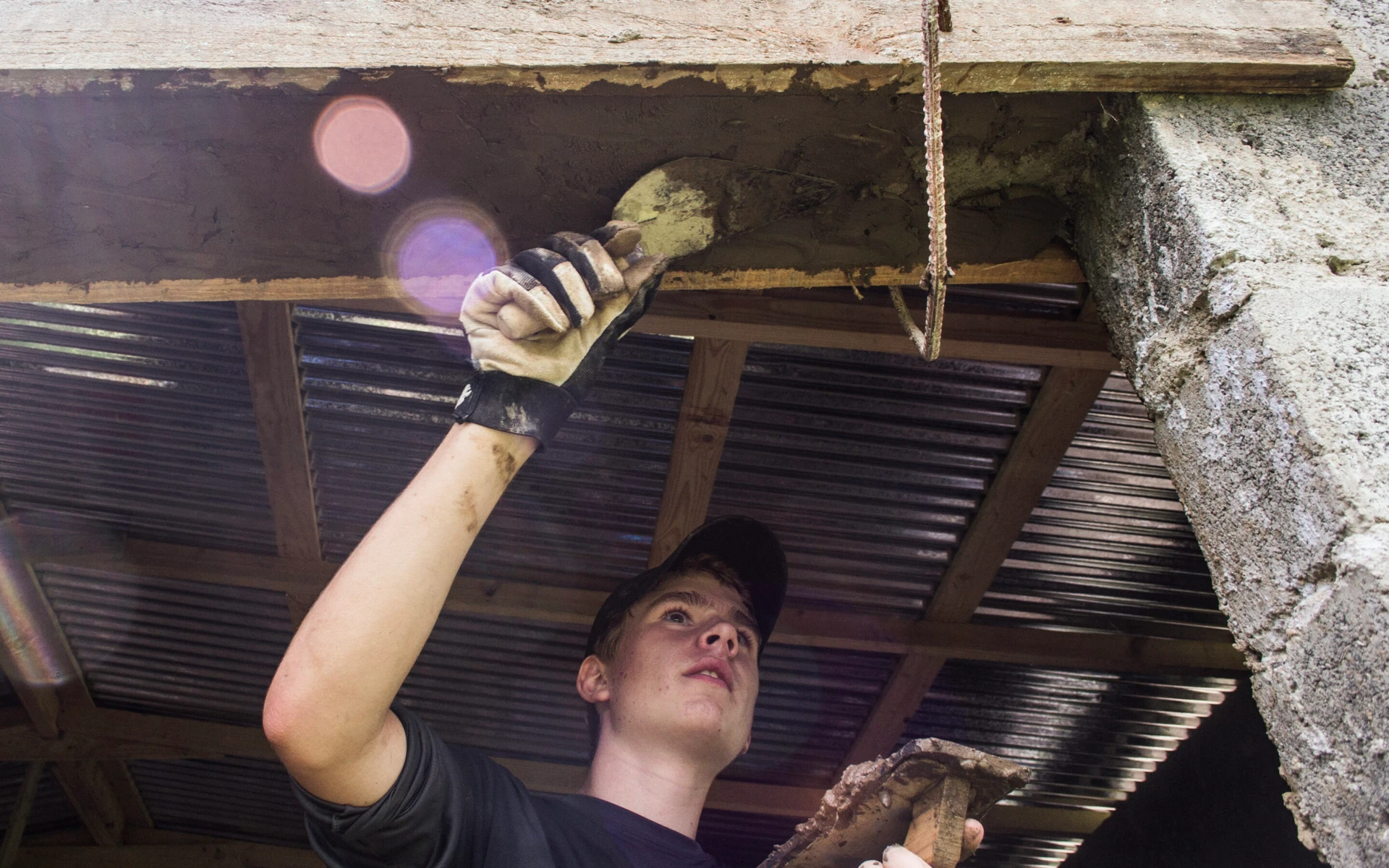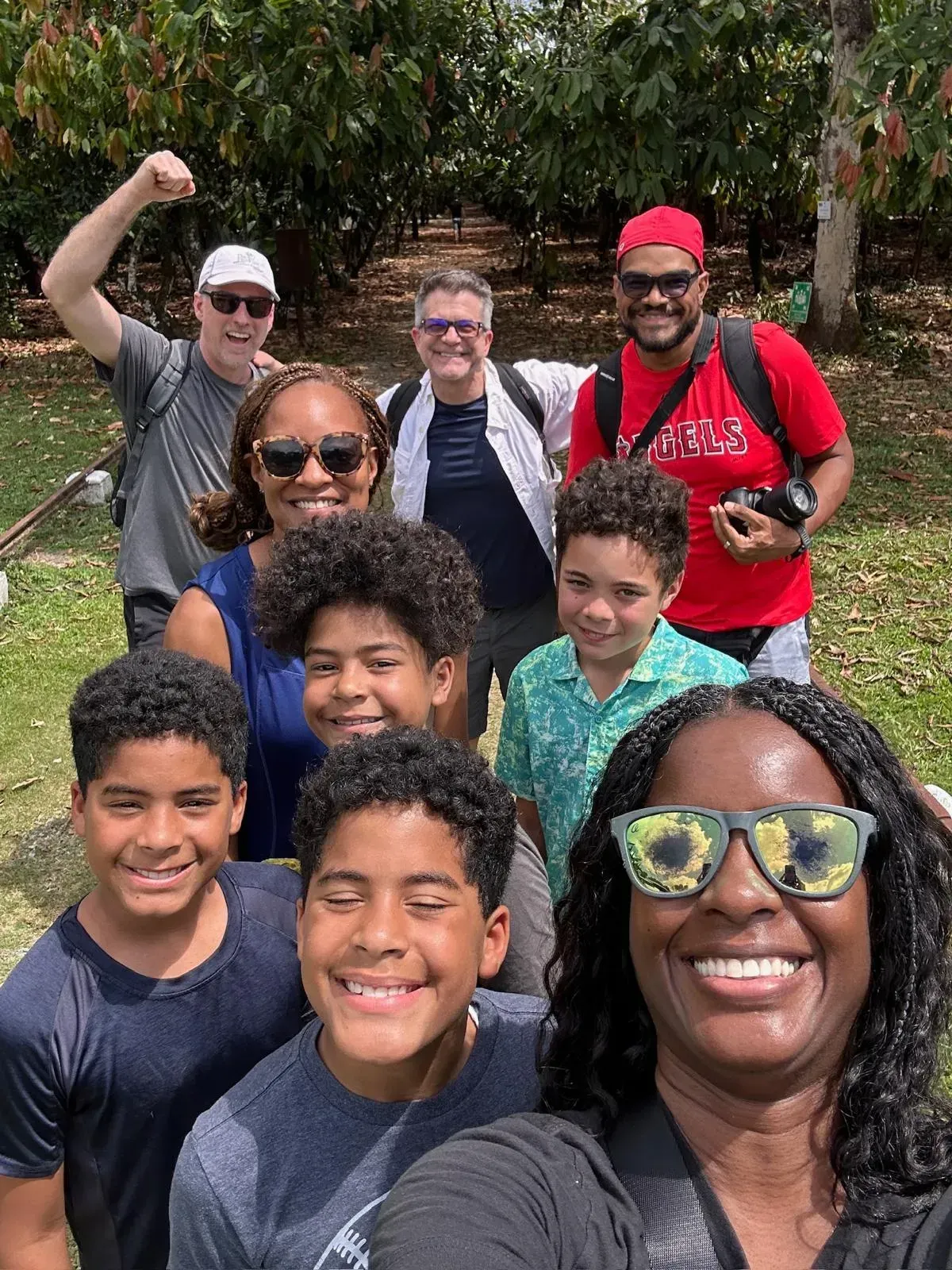By: Katherine Dayton, Director

Elouise Cobell
I first met Elouise Cobell in 1999 at an event in Montana for The Nature Conservancy. My parents were Nature Conservancy trustees, as was Elouise. As the saying goes, she “had me at hello.” Elouise and I talked awhile by the Blackfoot River, a focal conservation project for the Conservancy. What struck me then, and in every subsequent encounter with Elouise, was her diplomacy and steadfast conviction. She was a listener, too. She was genuinely, reciprocally engaged, and a teacher.
VISIONS has worked on the Blackfeet Reservation since 1991, and throughout the nineteen nineties our service projects often intersected with organizations that Elouise founded. Soon into the conversation with Elouise, we both recognized the potential for a partnership between VISIONS and a couple of the nonprofits under her leadership.
The following summer Elouise became part of our programs in meaningful ways. She joined us for dinner and spoke to kids and staff about the Blackfeet people, their past, present and future— and about the Indian trusts trial that was taking up much of her time. She explained how the issues at the core of the lawsuit fit into an entrenched history of mismanagement of contracts between the United States Department of Interior and American Indian Tribes. I watched as our teens became spellbound listening to Elouise, and afterwards they could have kept asking her questions all night long.
Elouise’s way of stating plain facts compelled listeners to become invested in her quest for justice. She led a person to important information that could be processed in personal ways, so that you wanted to learn more, become involved, no longer a bystander to injustices from over the decades. I never felt furor in her manner. Here was a woman who had received death threats, who constantly lived in a battle of sorts, and who witnessed every day on the reservation the lingering, debilitating effects that a century of corrosive practices by the federal government had created for Indian tribes. Yet nothing in her demeanor betrayed a trace of bitterness or ill will. Her vision for her people, especially Blackfeet youth, was first and foremost optimistic.
Eventually, the Land Trusts trial dominated nearly all of Elouise’s time, yet she remained available to meet and speak with our teen volunteers almost every season. Increasingly, she criss-crossed the country to Washington, D.C., for meetings and to testify. There was a joke around the rez that if anyone knew anyone flying through Salt Lake City, they were told to “Say hi to Elouise!” at the airport.
The story of the Indian Land Trusts trial, from beginning to end, is by turns suspenseful, eye-opening, even outrageous, but most of all it is inspiring. It was the largest class action suit in the history of the U.S. government. Elouise was the lead plaintiff, and the suit spanned three Presidencies, involved four Secretaries of the Department of Interior, and was a modern David and Goliath story.
All told, the effort lasted 16 years. If you haven’t read about it, it is well worth your time and essential, frankly, to your education about American history. There are dozens of references online from the Washington Post, the Los Angeles and New York Times to National Public Radio and the UK’s Telegraph, from Mother Jones to the Native American Times, and more.
It is remarkable what Elouise achieved in addition to the civil-action lawsuit that finally brought some compensation to hundreds of thousands of Native Americans. She was the Blackfeet Nation’s Treasurer for 13 years. She helped found the first U.S. bank owned by a tribe, the Native American Bank in Browning, Montana (VISIONS has been a customer since 1992). She established the Native American Community Development Corporation (NACDC) to promote job training and economic development on the reservation, and she created an effective financial education program for school kids on the reservation. She was the recipient of a $300,000 John D. and Catherine T. MacArthur Foundation “genius grant,” most of which helped fund the ongoing lawsuit. Last June, Elouise received a Doctor of Humane Letters from Dartmouth College. And now, upon her death, she has been nominated for the Congressional Medal of Honor.
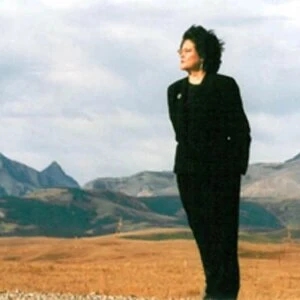 Elouise also played a key role in creating a unique partnership between The Nature Conservancy and the Blackfeet Nation, represented by the Flat Iron Ranch, a 1100-acre parcel on the reservation lying along the Rocky Mountain front, purchased by the Blackfeet people. Today it lies under a conservation easement to forever preserve and protect its biodiversity, habitat, and proximity to important wildlife populations. The Nature Conservancy – Blackfeet Nation partnership is a model for other Native American tribes who aim to preserve their lands.
Elouise also played a key role in creating a unique partnership between The Nature Conservancy and the Blackfeet Nation, represented by the Flat Iron Ranch, a 1100-acre parcel on the reservation lying along the Rocky Mountain front, purchased by the Blackfeet people. Today it lies under a conservation easement to forever preserve and protect its biodiversity, habitat, and proximity to important wildlife populations. The Nature Conservancy – Blackfeet Nation partnership is a model for other Native American tribes who aim to preserve their lands.
VISIONS high school participants have worked many summers on the Flat Iron Ranch, which has been our home base in recent seasons. Service projects have included renovation of a cabin slated to be an education center and the old bunk house; replacing of windows, doors and walls in ranch buildings; repairing roofs, fencing and decking; helping to restore an original homestead structure; creating a rock patio; maintaining the grounds and removing invasive plant species.
Last July VISIONS built a wheelchair ramp for Elouise at her home outside Browning, the commercial and government center of the reservation. The project is noteworthy because it is the only project related to Elouise in all the years of our collaboration that benefited her personally.
On October 16, 2011, Elouise Cobell died of complications from cancer. She got the diagnosis in 2009 just weeks before settlement of the trial. After hearing news of her death, President Barack Obama said this about Elouise:
“With the passing of Elouise Cobell, a proud member of the Blackfeet Nation of Montana, we have lost a champion of Native American rights. Her persistent and determined leadership in the pursuit of justice for Native Americans will leave an enduring legacy…In the face of daunting odds, Elouise remained driven by the belief that America is a place where tomorrow can be better than today – and convinced that this is a country where hard work and great resolve can make a difference.” –Barack Obama
Of all the people I have met in my life, Elouise is the only one who gives me goosebumps when speaking about her to others. I don’t know….but I wonder if this sensation is an instinctive reaction to knowing a true hero. She was and will remain a hero to many—hundreds of thousands, in fact. Elouise Cobell was an exemplary citizen, a unique stateswoman, and a model of citizenship for all Americans for generations to come.



